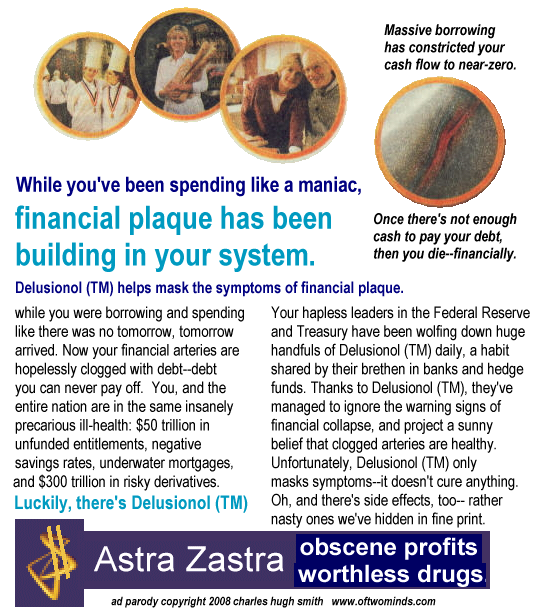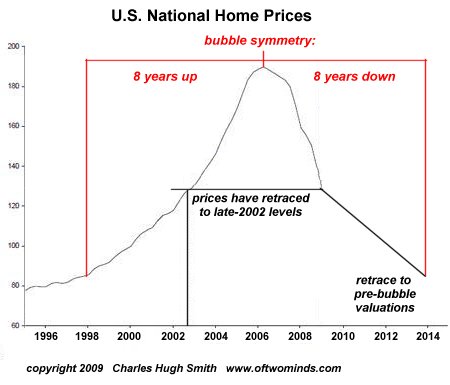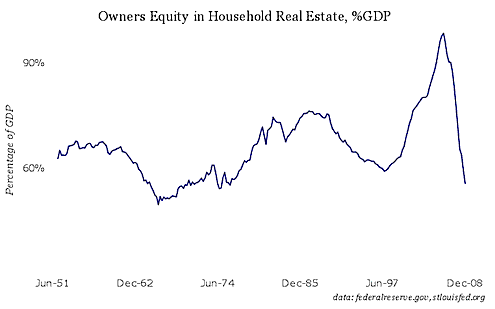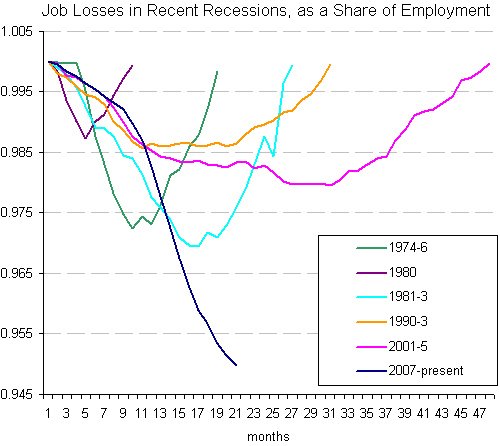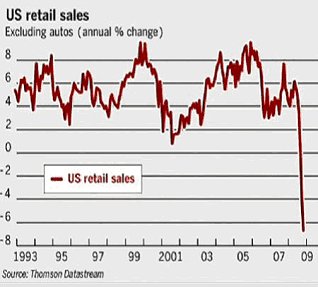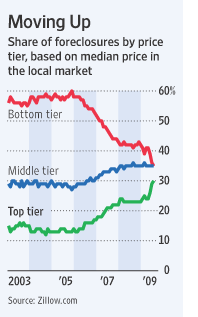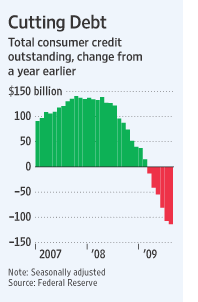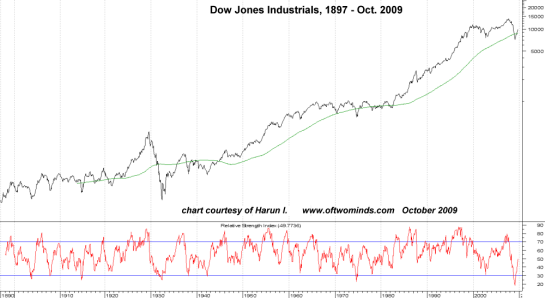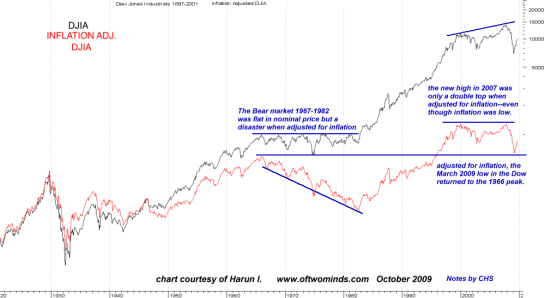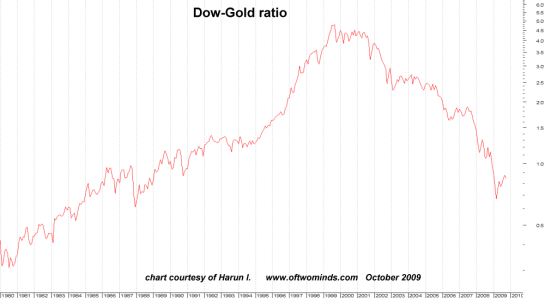When the Savior State Becomes the Enemy of the People
People want the Savior State to pay for their healthcare, retirement, education, housing, etc., even as they fear the unlimited power and funding they have granted their government. You can't have it both ways. Correspondent Mark A. sent in this report on the over-reach of government and the potential for abuse of power. It struck me as outrageous on multiple levels, not least the entrapment aspect and sex-crime hysteria (others may disagree). Yourself and Jim Kunstler have pondered the devolution of society as money becomes scarcer, foreseeing a breakdown of enforcement ability. Me, I think we underestimate the potential for the development of an increasingly rigid authoritarian (if nominally "democratic") regime as the government increases its relative share of resources and aims to preserve "order" as well as income as people become more stressed. Certainly all the instruments are in place - legal, technological, etc. Usurping revenue is one aspect of this progression, but arrogating authority is another more frightening one. Never trust the State (isn't that what the Founders advised?) Just a thought. Here is an excerpt from the story: Those activities include 22 offenses, which range from drug or weapons possession, to repeat traffic offenders and sex offenders. (CHS: you guys with mutilple traffic tickets: you are dangerous beyond belief! We're targeting you for complete destruction of your assets!) Anyone charged with those crimes could have their cars crushed or property seized, as part of the law. Sometimes the seized property is a building or a business. The danger of political activities being lumped in with criminal activity is higher than most complacent Americans believe. Nobody will defend a sex offender's rights, of course--but how about when tax resistance becomes a "crime"? (It already is, of course.) It's also a "crime" to resist an illegal war, too. It's easy to be naive about the essentially unlimited powers of the State. Most people believe that only "bad people" get caught by the government trawler, but it isn't quite that simple. If you or those who agree with you threaten the State's Imperial ambitions, tax collection or Power-Elite supported agenda, then you may be targeted. I can say that it "can happen here" because it's already happened here. I was with a friend when the FBI swooped in to arrest him for political crimes against the State, i.e. refusing to support an illegal (undeclared) war. At the time, the FBI has some 10,000 agents tasked with suppressing or disrupting the antiwar movement by whatever means were deemed necessary. Meanwhile, the agency's anti-Mob (organized crime) unit was reduced to minimal staffing. When the State feels its Imperial agenda threatened, then run-of-the-mill criminality gets ignored and the full resources of the State are turned on political threats to the status quo. Having been called into the FBI office myself for grilling (after being threatened along the "we know where you live" line), I can say from experience that the boundaries which are supposed to protect our rights only exist if you can afford high-powered legal representation and if you are powerful enough to raise a stink in the "right circles." Citizens with nothing to lose and no stake in maintaining the status quo are dangerous to the State (and thus to the Power Elite which has captured the State's lawmaking and enforcement arms), and so the State's first line of defense is to become a Savior State which showers entitlements as a way of providing voters with a stake in the system. The second line of defense is to become a repressive Police State with an active secret intelligence program against domestic protest (as occurred in the late 1960s-early 1970s with domestic C.I.A. spying and COINTELPRO, the FBI's secret campaign to infiltrate, undermine, marginalize and/or subvert the antiwar movement). These programs employed illegal entry ("black bag jobs") and surveillance, extralegal force and violence (creating and funding extremist front groups to commit the violence at arms distance from the Federal government), and psychological warfare ("dirty tricks," harassment, misinformation, setting up pseudo-movements run by government agents, threaten activists' parents landlords, employers, etc.) The 1976 Church Committee formed to investigate the domestic intelligence campaigns concluded: Anyone who doesn't believe their government is capable of Police State repression and subversion of First Amendment rights should research COINTELPRO more fully. While you might have disagreed with the groups subverted in 1969, the line between "those hippie radicals" in 1969 and "us Tea Party tax protesters" in 2009 is thin to vanishing. Nothing will be more threatening to the State and status quo than tax resistance/rebellion and former insiders (those whose belief in the system has faded) turning into whistleblowers on the web. Here is one source text: War at Home: Covert action against U.S. activists and what we can do about it. Put simply: the State holds all the hammers, and you know what happens to raised nails. Few seem to grasp the connection between an all-powerful Savior State and an all-powerful repressive State. In granting the power to become a Savior State then you also grant it the power to be a repressive regime or corrupt kleptocracy which openly serves an Elite and is accessible only via bribes/political donations (take your pick). Correspondent Doug K. drew the line connecting the Savior State and control very succinctly: Yet, even more outrageous (to me) than such abuses of authority, is the quiet public acceptance. The pervasive public attitude being; "As long as they hassle you they'll leave me alone", or " As long as you have to pay I get to keep my money". If such self absorption isn't proof of successful public psychological manipulation through propaganda (did you watch "Century of the Self"?), then what is? Deeply entrenched disregard, occasionally including open displays of contempt, for those forced to endure hardship, sure seems far more manufactured than natural. Beyond the "social proof" type of encouragement to disregard the less fortunate, the propaganda pushes happy pills. No less than a third of the people in this area have been willingly chemically lobotomized, in part because that has become a de-facto prerequisite for acceptance into the "social safety net". An overlapping fourth of the neighbors frequently "advertise" they're well equipped with high powered automatic weapons. Both groups "get a pass" from local law enforcement on any misdemeanor, unless it's related to "prosecutorial money making" (war on drugs), or something that excites the prosecutor's prurient interests (seriously!). Having endured multiple instances of vandalism and animal mutilation for the amusement of the happy pill crowd, this is quite dispiriting. Speaking of the social safety net: What a sham! I've seen plenty of people who admittedly(!) cause most of their own problems showered with assistance while those who recognize the causeof their hardship is no fault of their own don't ever qualify for anywhere near the same level of help, if any at all. I don't know how the social safety net truly operates in other places (each county is this state has their own semi autonomous office), but most of the rural areas in this state function/ practice the same way as the local office. Anybody in this area not stressed out enough to demand a prescription for chemical lobotomy isn't stressed enough to need assistance. Money (need) has nothing to do with it. The people I know who have "given in" to the demands of "safety net" inclusion appear to be doing better than they were when gainfully employed. A significant fraction seem to have more time and more money to burn now that their obligations are being taken care of. One person I know has leveraged their officially sanctioned "misfortune" into what appeared to be a legalized fraud, then bought an RV and is now out touring the country! Taken together, all this (4 preceding paragraphs) appears to be evidence of a deliberate intentional effort to make sure that if (when?) the villagers ever do pick up torches and pitchforks they'll turn on each other instead of marching toward the castle. Local PTB aren't just extracting funds from the peons. It was recently revealed that the bread and butter of one local "economic success story" (as reported in a number of local and regional publications) was profits from illegal drugs (pot growing operation). I've heard from several members of law enforcement --after they turn off their pocket recorders-- that several other well-to-do "pillars of the community" are involved in worse (meth). The only difference being that the pot grower didn't share his good fortune with the right people, while the other names always show up on published lists of contributors to the local elected officials. If you're doing well in this community, and you're not making some sort of "contributions to the public good", local authorities will be scrutinizing your every move. What is required to qualify as "economic success" appears to be entirely dependant on at least one of two things, either dumb luck (opportunity) or some sort of "crookedness". I clearly don't have the former and the "right people" aren't in any way obligated to permit the latter. Money really is like rain, and for a lot of people this is a severe drought. Doesn't matter what kind of rain dance you do, let alone how hard or long you keep dancing. All you can really do is keep your buckets handy. Unfortunately there hasn't been a cloud in the sky for several years. Correspondent J.P.B. submitted this comment on the use of surveillance for, um, "upholding the law"--or is it just another violation of our rights for the purposes of extortion? Welcome to a State kleptocracy armed with high-tech gadgetry: I have been warning folks to be on the lookout for this for the past two years. Now I find out that the Franklin county Sheriffs have been testing, for 2 years, cameras that read license plates as they drive by. They then run a search on the plate to see if there are any outstanding warrants, etc. Funny how they rolled this out and did not really publicize it. I find it creepy. I wondered how I got pulled over for an expired registration (I had the new one on my seat as I was heading to the store to get new screws for the license plate. I received no ticket) It puzzled me for the past two years how an officer parked on the side of the road was able to see my plate sticker as I drove past at 45 - 50 mph. Now I know how! Sneaky. They are desperate and will stop at nothing. Nothing! Rules, rule of law, pfffft. I have been saying that for the past few years also. They keep changing the rules as they go along to suit themsleves and their oligarchs. You can't grant the Central State powers to be a Savior State without also granting it the power to become a repressive regime that is nominally "democratic" even as the levers of actual power are operated by various Power Elites. I would rather jettison the Savior State and be poor rather than live in a kleptocracy run for the benefit of the State and Power Elites partnership. Since the Savior State is doomed to insolvency, other arrangements will have to be made in any event. Thank you, Mark A., Doug K. and J.P.B. for your commentaries. Notes: Yesterday's entry Crazymaker: Journal of American Media and Lifestyle(October 29, 2009) was a spoof--sorry I did not make that clear. As I type the stock market is down handsomely for the week, but I see the potential for a retrace back to the highs (and lows in the dollar) so it behooves us to be careful and book profits whenever possible. "Your book is truly a revolutionary act." Kenneth R. Thank you, Gregg F. ($25), for your most generous donation to this site. I am greatly honored by your support and readership.Caught your stories recently about extortionate fines and so on. Last night I ran into this story Police crush sex offender's car; warn of moreabout a Denver ordinance that permits the city to sue and confiscate property used in the commission of various crimes (modelled after heinous drug laws affirmed by the Supreme Court).
The unit was created by an ordinance in 1994 and targets things described as: "Any parcel of real property, personal property, or motor vehicle on or in which any of the following illegal activity occurs, or which is used to commit, conduct, promote, facilitate, or aid the commission of or flight from any of the following activities."
"Many of the techniques used would be intolerable in a democratic society even if all of the targets had been involved in violent activity, but COINTELPRO went far beyond that...the Bureau conducted a sophisticated vigilante operation aimed squarely at preventing the exercise of First Amendment rights of speech and association."
It has become glaringly evident that local "law enforcement" targets those forced to endure visible embarrassment of hardship. Our repeated "contributions to the public good", made to atone for such grievous offenses as economic misfortune, only serves to perpetuate this relationship.
RE: "Upholding the Law" or Simply Theft by Other Means?:
Permanent link: When the Savior State Becomes the Enemy of the People
You can also find my work on AOL's Daily Finance and Seeking Alpha.
If you want more troubling/revolutionary/annoying analysis, please read Free eBook now available: HTML version: Survival+: Structuring Prosperity for Yourself and the Nation (PDF version (111 pages): Survival+)
Of Two Minds is now available via Kindle: Of Two Minds blog-Kindle





















 This is an apt description of the craziness created by media/marketing messages every minute of every hour of every day in the USA. Bake a super-rich cake, and oh my, why are you so fat? Now you have to torture yourself with diets which don't work.
This is an apt description of the craziness created by media/marketing messages every minute of every hour of every day in the USA. Bake a super-rich cake, and oh my, why are you so fat? Now you have to torture yourself with diets which don't work.